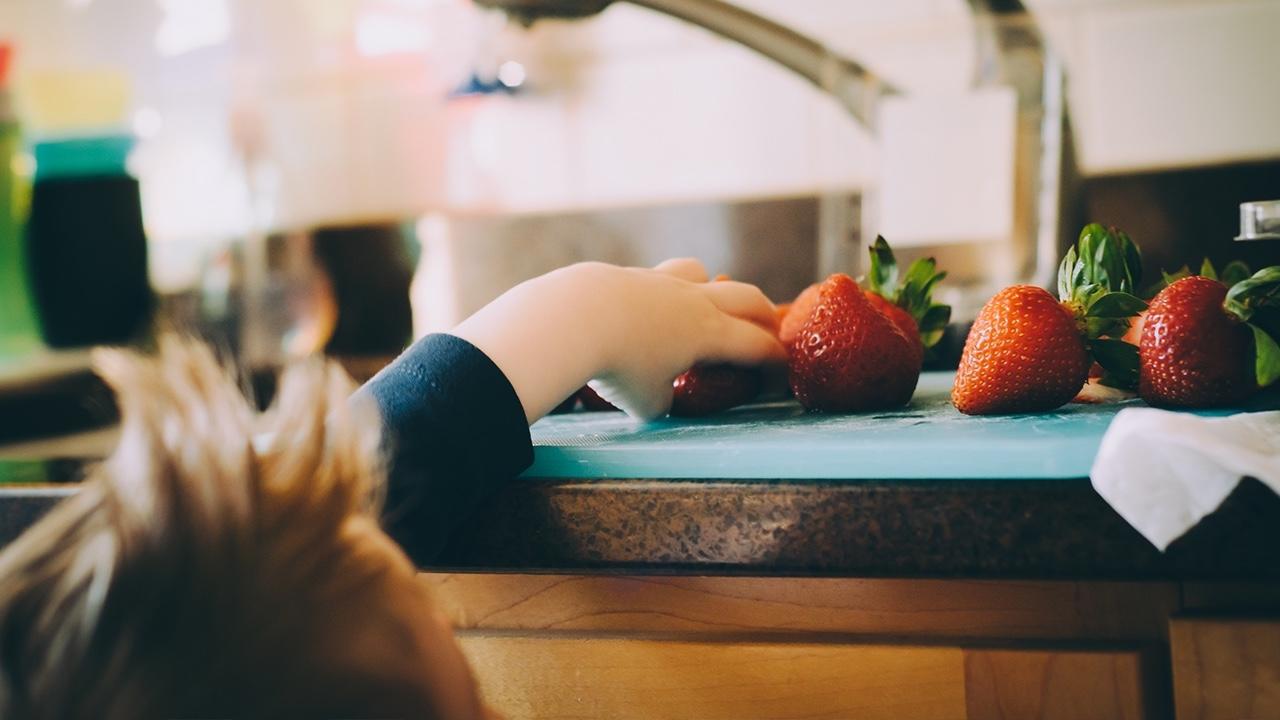Home Cooking Secrets for Busy Families

Even the words, "a home cooked meal” evoke a happy smile. When I was a child, the typical parent, usually the mom, spent ninety minutes a day in meal preparation and clean-up and the family typically ate together. Today, a regular routine of eating together often gets crowded out by other activities. For some families, this only occurs at holidays and special occasions.
Today, time devoted to these tasks is thirty to forty-five minutes a day. And, yes, women still do the bulk of it. The reason for less home cooking is understandable with forty-five percent more women now working away from home, everyone working longer hours, and the absence of a cultural shift towards men learning to cook.
Unfortunately, filling in for home cooked meals are fast food, processed foods, and restaurant meals. The problem with that is that almost all studies show that meals away from home are associated with poorer nutrition including less protein, vitamin C, iron, zinc, magnesium, and phytonutrients. They also contain one hundred plus more calories. Salad and vegetables make fewer appearances when food is bought on the run. Homemade meals also tend to be less than half the cost of frozen dinners and almost a third the cost of restaurant fare.

For busy families, meals need to be easy to prepare, nutrient dense and tasty. It’s not hard to locate recipes online or in a book but most recipe books sit on shelves unused. Most cooks prepare the same five or so recipes over and over again. It’s fine to have favorites but variety is healthy and keeps some fun in eating at home.
Once a week, or even once a month, cooking can work if you like to plan ahead and don’t mind eating frozen foods. It allows you to save some money by buying in bulk and gives you the peace of mind of having food prepared ahead of time. If you prefer fresh foods, then prepping vegetables by washing and chopping enough for a few days at a time might work better for you.
If you currently have a repertoire of a few healthy and easy to prepare meals, then start with those and rotate a new recipe in every few days. If the lady at the fast food window knows you by name, then start by just replacing one meal out a week with a simple homemade recipe. It is much better to start small and incrementally change your cooking habits for good than it is to try to revolutionize them overnight and end up frustrated or overwhelmed. We don’t want you returning to the frozen meal isle and drive through line within a week.
Sometimes it isn’t the meal prep itself but our schedules, in general, that make it hard to sit down to a meal together. Be as flexible and creative as you can in trying to find a way to make time for this. Eating habits are being formed for a life time and relationships can be built over a meal.
Focus on each other during meals, putting your fork down between bites and savoring the break from your busy day. This style of eating is the cornerstone to weight control. Fast and distracted eating can really pack on the pounds. Slow and mindful eating, on the other hand, helps you to absorb the nutrition and eat just what you need, no more.
Aim to do just a bit better this week. Just planning what you want to eat this week is a big step forward. If some already cooked chicken and chopped vegetables await you at home, it is easier to drive past the quick meal options.
Talk to your children about why you are making this change and you’ll find that they will help to hold you accountable. The more you eat this way, the easier the process will become. Occasionally invite your children’s friends to join you for a meal and soon your reputation for delicious foods will grow.
Home cooked meals don’t have to be a thing of the past. It’s up to you to preserve this time-honored tradition more often than Thanksgiving. A planned meal served at a table with the family is the perfect setting to teach children to be grateful for the food they are receiving. Not too many people are offering thanks as they pull out from the fast food line. Both parents and older children can share in the work involved. Even if cooking was not a skill you learned in your youth, it's more valuable than ever. Children who learn cooking skills early will have the confidence to continue to cook as they grow up.
Join Our Community
And stay connected with free news and updates!
Receive a short weekly newsletter with only the best parenting inspiration, advice, and techniques designed to help you raise happy, healthy, well-behaved children.
We hate SPAM. We will never sell your information, for any reason.




